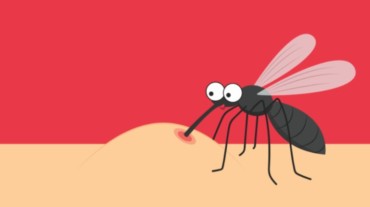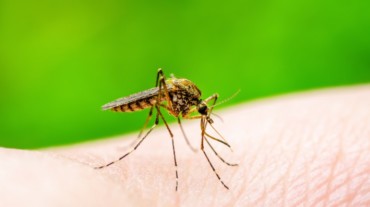
Monsoon in India is usually associated with mosquito-borne diseases, primarily dengue fever—the incidence of which has been on a steep rise in the past few years. This year, however, it isn’t this viral infection that’s on everyone’s mind. Locked in our homes, dengue fever is the least our problems—as covid-19 is ruling the charts right now.
However, there is a shocking connection between covid-19 and dengue that none of us—including the scientists responsible for unearthing it—saw coming. You see, a study suggests that people who’ve had dengue fever in the past might showcase some level of immunity against covid-19.
A new study that analysed the coronavirus outbreak in Brazil found this unlikely link between the spread of the novel coronavirus and past outbreaks of dengue fever.
Here is what the study suggests
The not yet published study led by Miguel Nicolelis, a professor at Duke University, and shared exclusively with Reuters, compared the geographic distribution of coronavirus cases with the spread of dengue in 2019 and 2020.
Places with lower coronavirus infection rates and slower case growth were locations that had suffered intense dengue outbreaks this year or last, Nicolelis found.
“This striking finding raises the intriguing possibility of an immunological cross-reactivity between dengue’s Flavivirus serotypes and SARS-CoV-2,” the study said, referring to dengue virus antibodies and the novel coronavirus.

“If proven correct, this hypothesis could mean that dengue infection or immunization with an efficacious and safe dengue vaccine could produce some level of immunological protection against coronavirus,” it added.
Apparently, this isn’t the first time researchers have connected dengue with covid-19
Nicolelis told Reuters that previous studies have shown that people with dengue antibodies in their blood can test falsely positive for covid-19 antibodies even if they have never been infected by the coronavirus.
“This indicates that there is an immunological interaction between two viruses that nobody could have expected, because the two viruses are from completely different families,” Nicolelis said, adding that further studies are needed to prove the connection.
The study was being published ahead of peer review on the MedRxiv preprint server and will be submitted to a scientific journal.

The study found that in Brazilian states such as Paraná, Santa Catarina, Rio Grande do Sul, Mato Grosso do Sul and Minas Gerais, with a high incidence of dengue last year and early this year, covid-19 took much longer to reach a level of high community transmission compared to states such as Amapá, Maranhão and Pará that had fewer dengue cases.
Select Topics of your interest and let us customize your feed.
PERSONALISE NOWThe team found a similar relationship between dengue outbreaks and a slower spread of covid-19 in other parts of Latin America, as well as Asia and islands in the Pacific and Indian Oceans.
However, the study leaves the room open for a lot of questions
For a country like India that reported close to 70,000 dengue cases in 2019, this is great news. This could mean that herd immunity is not a distant dream for us, but a likely reality.
But since the study doesn’t specify the level of immunity that people once infected with dengue fever demonstrate against covid-19—nothing can really be said for certain. The researchers also don’t answer the pertinent question of how long the immunity offered by dengue lasts after infection.
All this brings us to the status quo we’re existing in right now… with masks on, armed with hand sanitizers, waiting for herd immunity or the vaccine—whichever comes first.
(With inputs from Pedro Fonseca at Reuters)